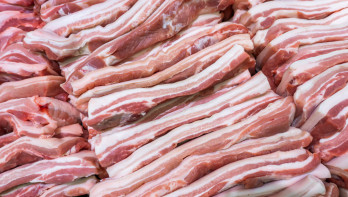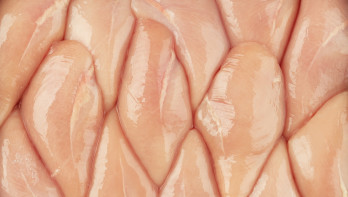Opinion Wouter Baan
Quite hypocritical that Schiphol is phasing out meat
Just before boarding, ordering a hamburger will become a lot more difficult - because airplane food often doesn't taste good anyway. Schiphol is not going to completely ban meat, but wants to significantly reduce the current offering to save CO2 emissions. This seems almost like a classic case of the pot calling the kettle black. And besides, it's rather simplistic.
The criticism of meat consumption is not new. But the backlash is quite noticeable again. Besides Schiphol, Saxion University proudly announced earlier this month that from 2025, they will no longer serve meat at events of the educational institution. In the usually down-to-earth East of the Netherlands, meat consumption seems to be as much of an issue as in other parts of the country.
However, Schiphol is not going to completely ban meat, but wants to reduce the offering at its outlets to 40%. In other words, the other 60% of the protein offering must be of plant origin, as De Telegraaf wrote last week.
Simplistic
This piece is not a plea for unbridled meat consumption, as is often assumed with a counterargument. A can never be a goal in itself, and B, meat is too much of a delicacy for that. But the fact that Schiphol - one of the three largest emitters in the Netherlands - wants to reduce the meat offering seems to me to be the wrong focus for the airport. Because that unfortunate position is not really due to the hamburgers eaten there. And besides, the measure is simplistic. Several studies show that meat and dairy in terms of CO2 emissions can sometimes already be quite comparable to plant-based alternatives. Not to mention the nutritional value. In addition, there is still much to be gained by using by-products in animal feed, for example. If Schiphol truly has great green intentions, it would have been more daring to do something that directly affects its own business.
Hybrid meat
Meanwhile, the agricultural sector is struggling with the persistent anti-meat policies at public and semi-public institutions. Passively watching meat slowly disappear from the societal menu feels unjust. But pushing back too hard against the pressure exerted by NGOs often backfires. Making a plant-based shift is also risky for slaughterhouses. The series of major losses at Beyond Meat are living proof of this. Those who did not invest in this trendy American startup a few years ago were losers. We now know better. Dutch slaughterhouses often try, but sometimes revert on their strategy. This is because meat substitutes simply sell poorly due to poor taste and the rightful association that it is highly processed food. The trend now seems to be hybrid meat products, which are a kind of optimum between taste experience, nutritional value, and emissions. In other words, a compromise between preserving cultural eating habits and minimal climatic impact.
Olympic menu
At the Olympic Games, the offering of meat (and eggs) for athletes was significantly reduced, as France tried to make it a green event. Several athletes complained because they could not get their nutritional values from plant-based alternatives. So, meat still definitely fits into a conscious diet. As long as you keep the balance yourself. And Schiphol and Saxion do not need to do this with good intentions to primarily meet their own environmental goals.

Wouter Baan
© DCA Market Intelligence. Op deze marktinformatie berust auteursrecht. Het is niet toegestaan de inhoud te vermenigvuldigen, distribueren, verspreiden of tegen vergoeding beschikbaar te stellen aan derden, in welke vorm dan ook, zonder de uitdrukkelijke, schriftelijke, toestemming van DCA Market Intelligence.


